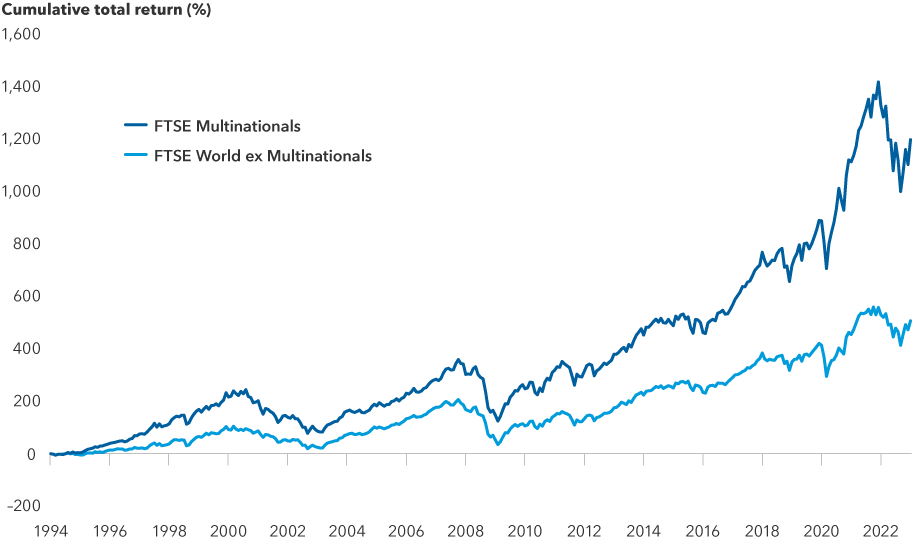Portfolio manager outlines reasons why global reach is a benefit despite geopolitical crises

When it comes to having portfolio exposure to large, multinational companies, critics point to how they are vulnerable to the impact of de-globalization and geopolitical risks. In recent times, these companies have had to endure the knock-on effects of rising US-China tensions, the war in Ukraine, a painful bear market and a slowing global economy. However, one portfolio manager believes that, in fact, multinationals are the best positioned to navigate this uncertain environment.
Jody Jonsson, equity portfolio manager at Capital Group, said: “There is a reason multinational companies have come to dominate the global economy and financial markets. For the most part, they are run by managers who are smart, tough and experienced. This isn’t their first rodeo. They have seen all types of trade environments, favourable and unfavourable. In my view, these battle-tested companies are favourably positioned to survive and even thrive in a hostile landscape.”
In addition to having experienced management teams, these firms have the advantage of diverse revenue streams, which can help them weather economic storms. For example, if one region of the world is experiencing a downturn, a multinational company can rely on revenues from other regions to offset the losses. This diversification also allows these companies to tap into growing markets and take advantage of opportunities.
Jonsson takes this a step further. She says the multinationals to favour in your portfolio are ones who can take a “multi-local” strategy and expand into fast-growing emerging markets like China, India or Brazil. She explained that the well-justified fear is these firms will be “leapfrogged” by smaller competitors who are more in touch with local markets.
“Emerging markets consumers are looking for brands they can trust and companies that know the local marketplace,” she says. “Large multinationals that can break themselves down, think locally, act nimbly and launch products quickly are more likely to succeed in the long run.”

Sources: Capital Group, Refinitiv Datastream. The FTSE Multinationals Index comprises companies which derive more than 30% of their revenue from outside their domestic region. Data as of 1/31/23. Past results are not predictive of results in future periods.
Part of their advantage is that they can leverage their global scale to reduce costs and improve profitability, making them more resilient in challenging economic conditions. More and more, multinationals are also producing where they sell, moving away from single source supply chains. Jonsson adds that reliability and robustness are of greater importance than cost and efficiency, which means moving manufacturing to other countries, such as India, Vietnam and Mexico, makes sense.
For an investor, multinational companies can offer investors exposure to a broad range of industries and geographies. This can help diversify an investor's portfolio, spreading risk across multiple areas. Additionally, multinational companies tend to pay dividends, making them an attractive option for income-seeking investors.
Broad strokes across an index will not benefit your portfolio, however, according to Jonsson. Instead, it comes down to effective analysis and stock picking. “This shifting global landscape is good news for stock pickers with a penchant for fundamental research,” she says. “Not every company will get it right, and it’s our job to separate the ones that can from those that cannot.”
The top 5 multinational companies by market cap as of April 5, 2023 (FinanceCharts.com)
- Apple Inc. - $2.59 trillion
- Microsoft Corporation - $2.12trillion
- Saudi Arabian Oil Company (Saudi Aramco) - Market Cap: $1.9 trillion
- Alphabet Inc. (Google) - Market Cap: $1.34 trillion
- Amazon.com, Inc. - Market Cap: $1.036 trillion



